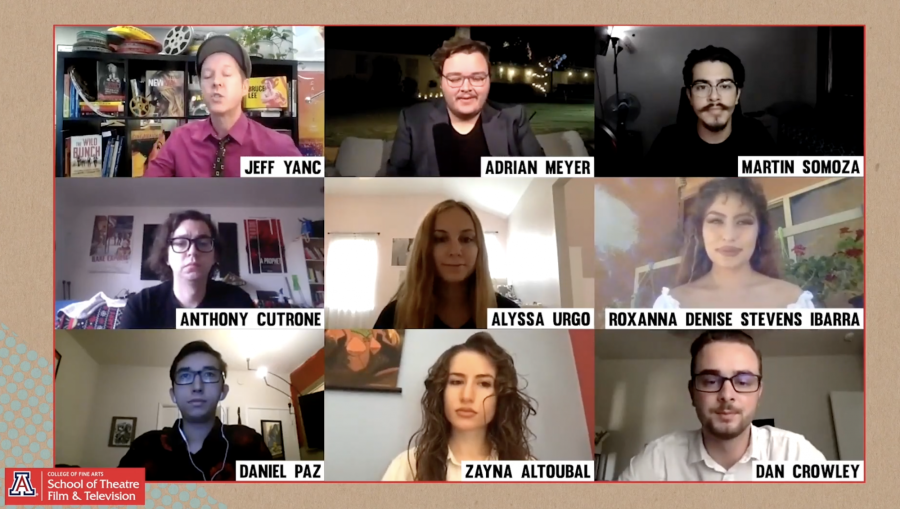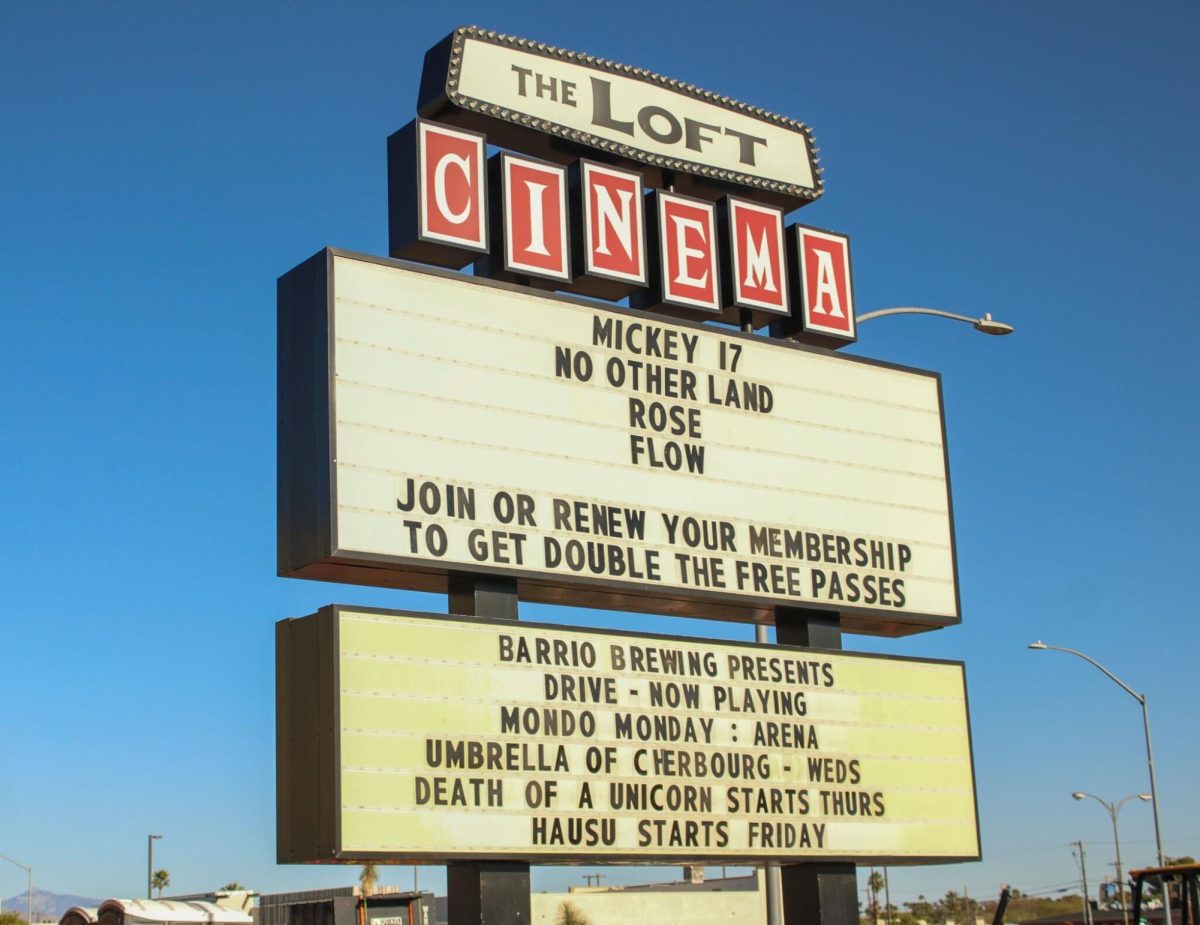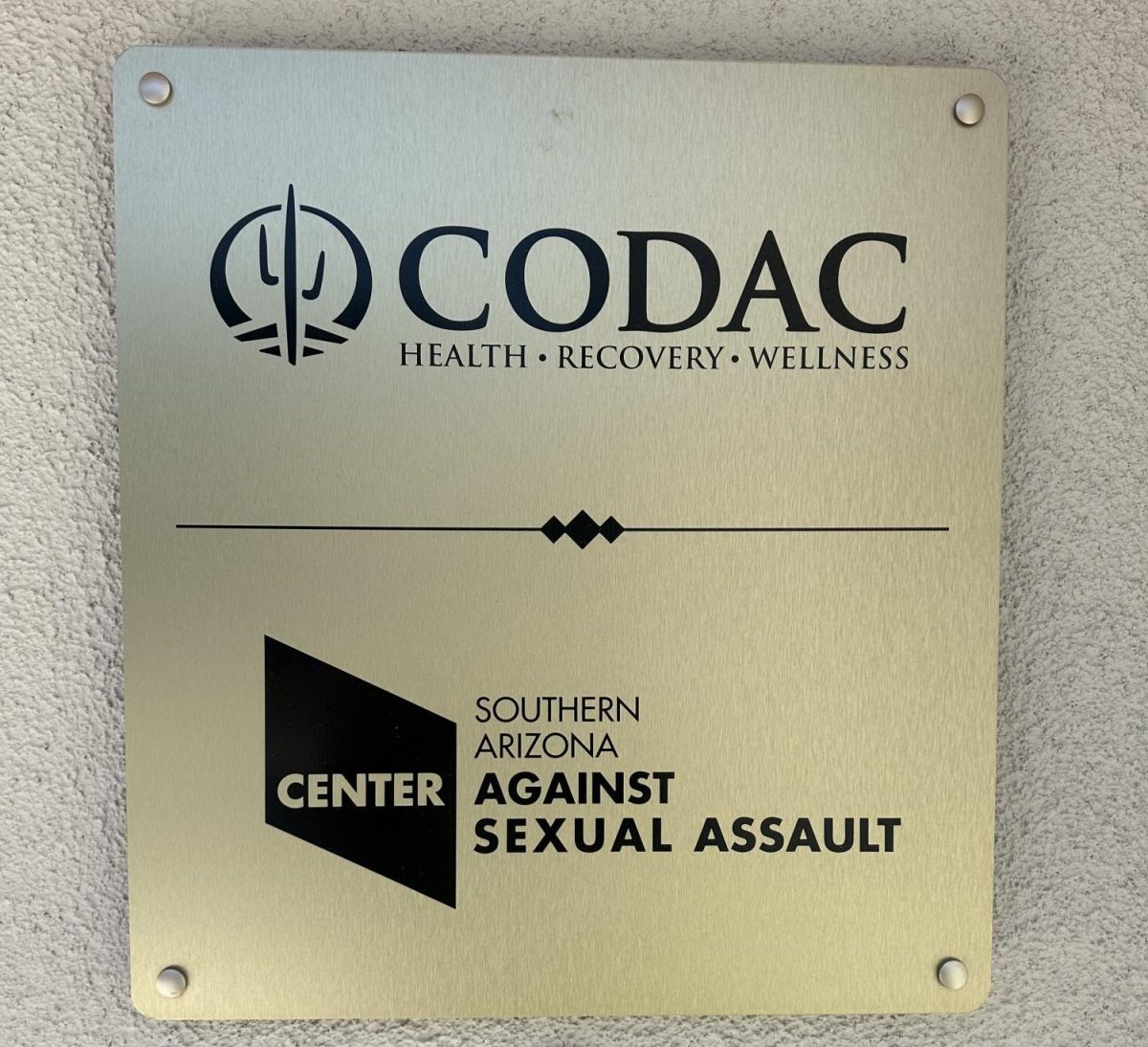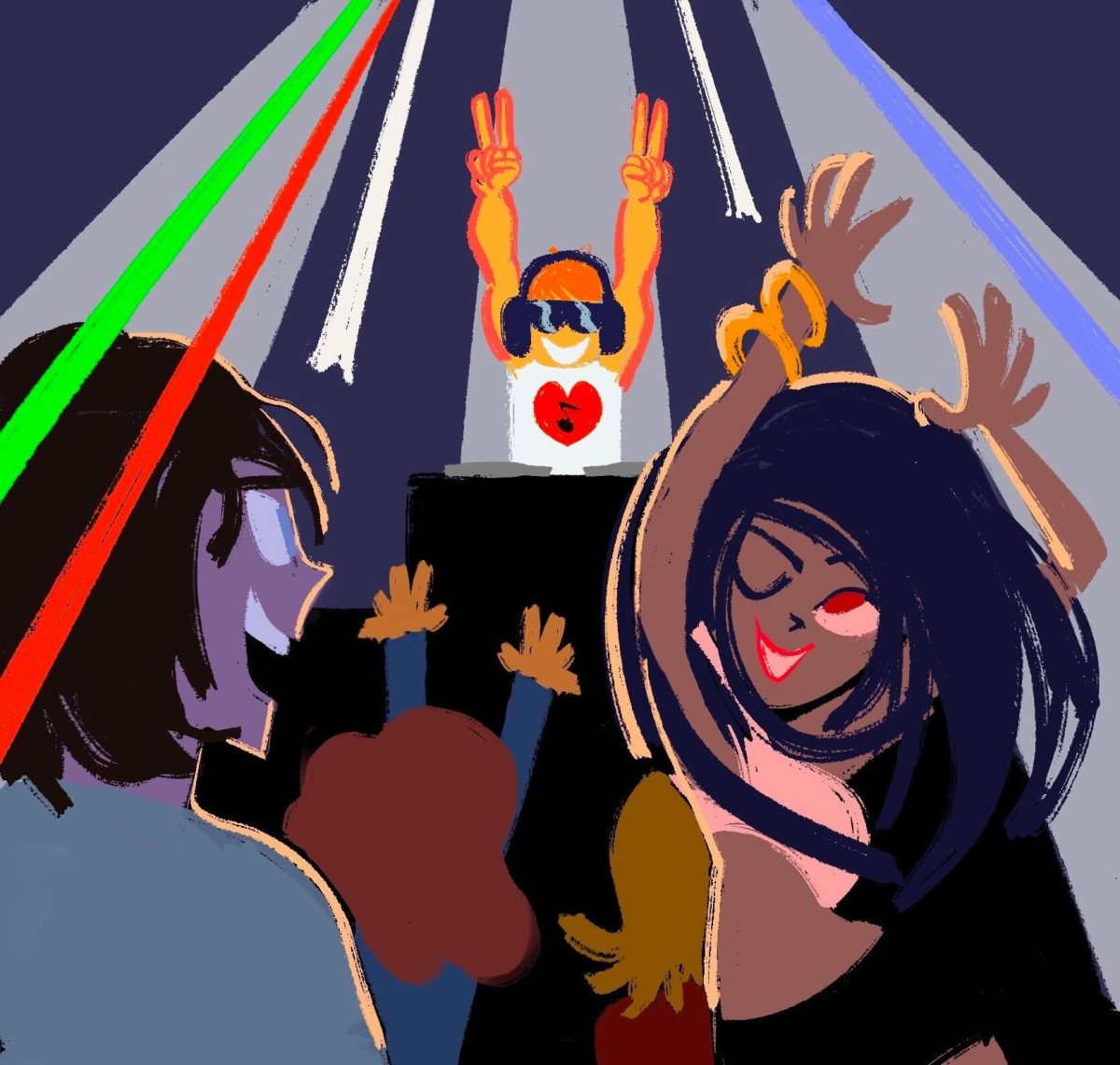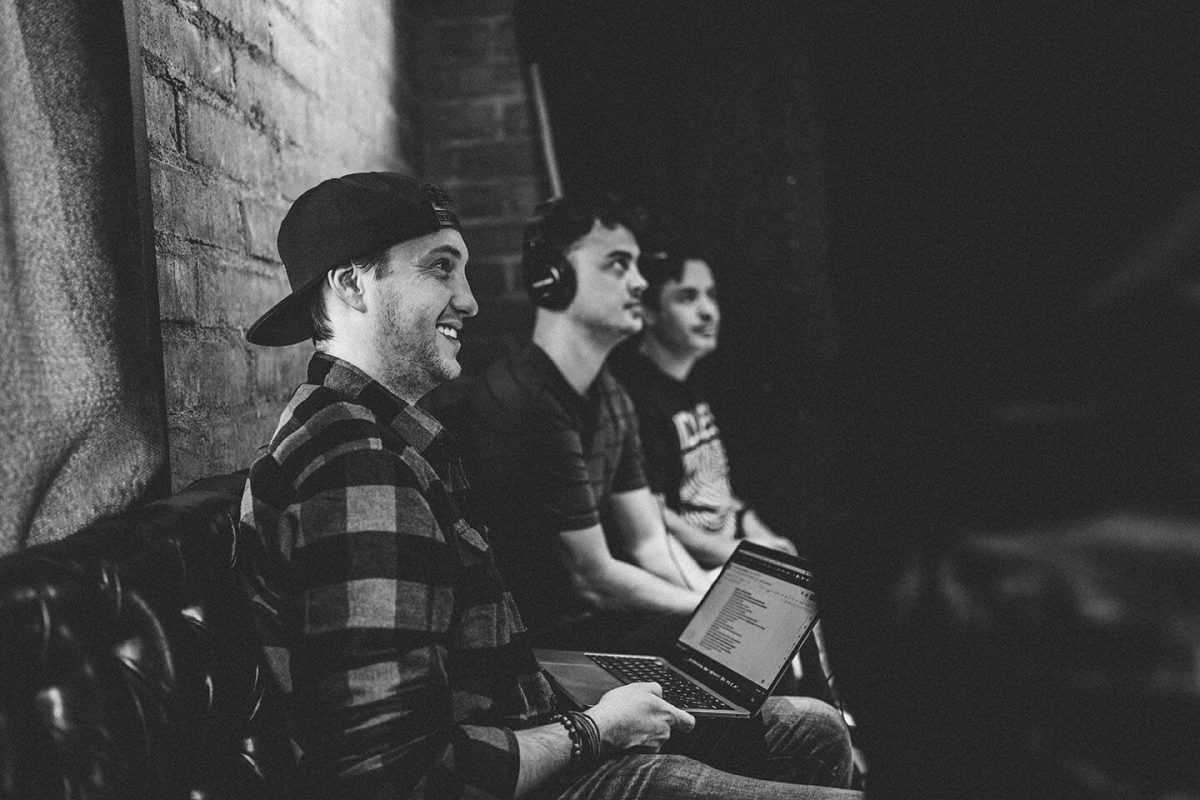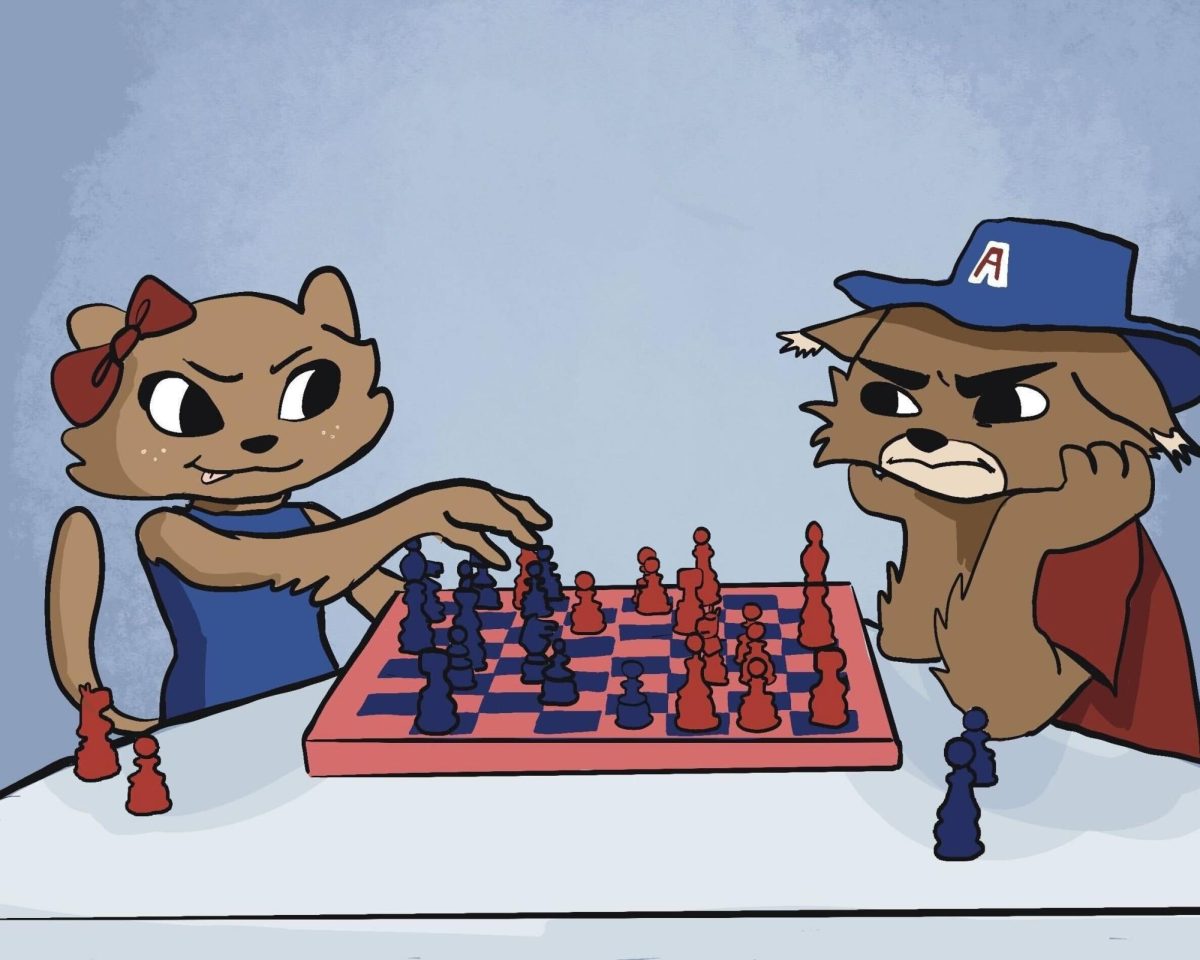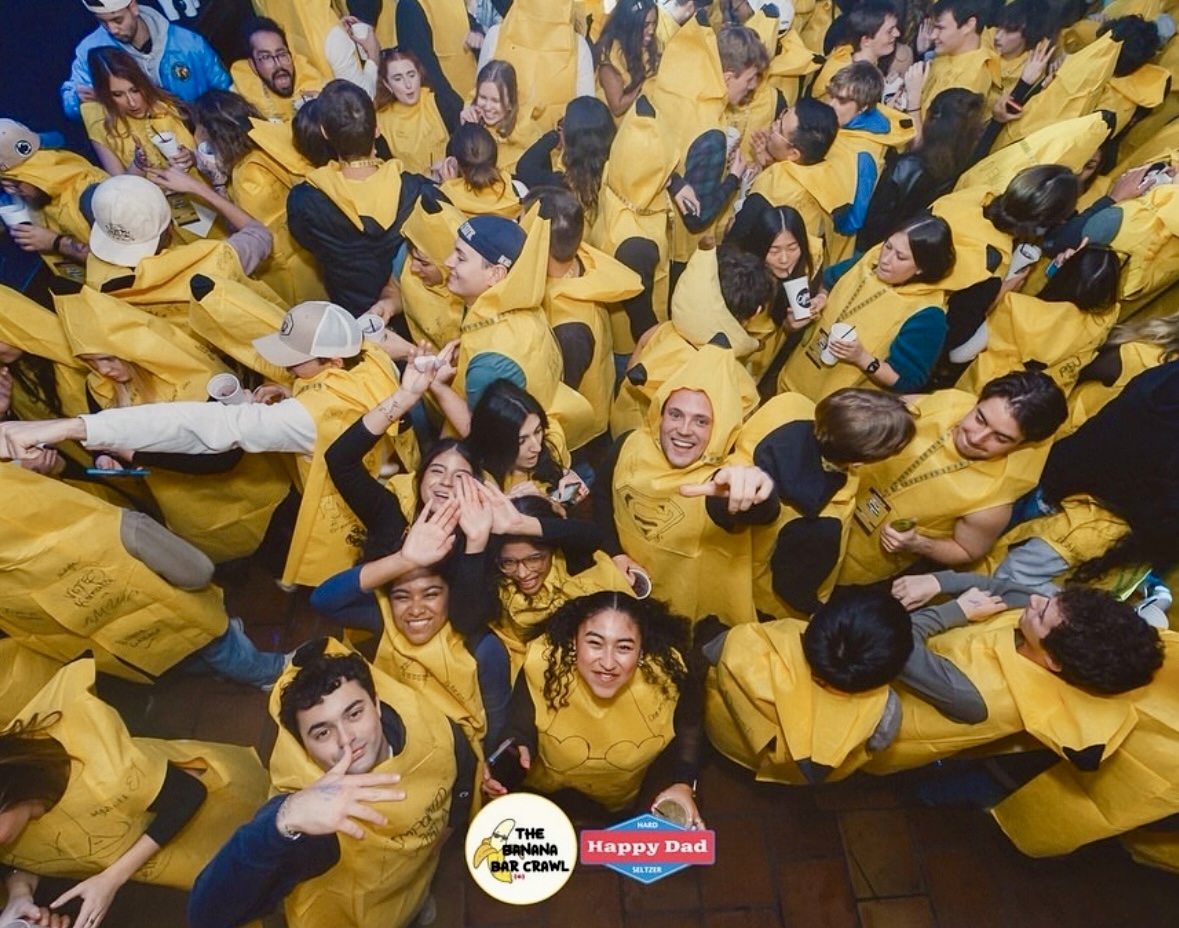The 15th annual I Dream In Widescreen event presented by the University of Arizona’s School of Theatre, Film & Television kicked off a little bit differently this year, streamed live on YouTube in the form of a digital showcase as a result of COVID-19.
This two-day showcase, first streamed Aug. 8-9, featured 14 short films of senior student filmmakers making their on-screen debut as a way to commemorate their time at the TFTV school in place of the annual celebration hosted at the Fox Tucson Theatre.
The filmmakers who made their short film debut at this year’s IDIWS were Mason Day, Roxanna Denise Stevens Ibarra, Dan Crowley, Adam AlegrÍa, Anthony Nicholas Cutrone, Alyssa Urgo, Zayna Altoubal,Daniel Paz, Adrian Meyer , Martin Somoza, Zach Lovvorn, Bailey Stalcup, Adam Meilech, Emma Sinex, Ian Lowney, Joel Romero, Sam Lulloff and Faye Ruiz.
RELATED: Lone Malefho: Activist, immigrant, influencer and UA student
The films were all unique in their own way; one of the films was shot in black and white, another was shot and developed exclusively with film while others still curated specific color schemes, music, sounds, locations and drew inspiration from the filmmakers’ own cultures and personal experiences to stay true to their original vision.
The event was meant to be a showcase of these individual works of art created by the seniors of TFTV, but the panelists also provided wisdom during conversations about the film industry.
The event began with a two-minute countdown and a short introduction from Scott Stuber, head of original films at Netflix, which led into intimate conversations between revered titans of the film industry that were all UA alumni.
The event was hosted by Jeff Yanc, program director at The Loft Cinema who holds a bachelor’s and master’s degree in media arts, according to the TFTV website.
Conversations with the industry luminaries for day one dubbed: The Influencers, The Starmakers and New Voices with panelists Tyler Gillett, Lindsay Utz, Brad Slater, Eyde Belasco, Darious Britt and Christopher Nataanii Cegielski, according to the TFTV website.
The heart of these segmented conversations emphasized how the importance of hard work, perseverance and dedicating the time to make connections within the industry can illuminate the path less traveled.
Utz, who graduated in 2003 with a bachelor’s degree and is an editor within the film industry said that opportunities only work when you do.
“I genuinely believe that you have to create your own opportunities [on] your own. You know, you have to decide what you love and go for it,” Utz said. “It becomes a situation where you are not asking for permission to do the things you want to do.”
In response, Gillett who graduated in 2004 with a bachelor’s degree and is a film, television and new media writer, director and producer said that the crux of creation was embedded within friction.
“What I think you’re talking about is friction. If people aren’t saying no to me, getting comfortable with that is a huge thing to learn. You only learn it over time. This kind of conflict sort of forces you to actually articulate why your taste is what it is and why that choice is the right choice,” Gillett said. “This is what allows people to have ownership of the process right now and lets people feel like they are part of actually shaping what it ultimately becomes.”
The second panelist discussion was presented by WME Agent and Partner Slater and Casting Director Belasco that touched on advice about making your way in the industry.
Slater received a bachelor’s degree in media arts in 1996 and said that resourcefulness was key in earning a spot in the industry from agents.
“[The path to getting an agent], I think it starts off with doing everything that you can do, be a part of [something] so that you have something to show that showcases your talents, you got to be resourceful like you would about anything,” Slater said. “One of the most important things in life is being able to be comfortable when you’re uncomfortable. Right? So you have to have those experiences and I think our business probably any business provides for a lot of that, but ours definitely, you know, there’s always been that rite of passage.”
RELATED: The ‘best kept secret’ of the School of Theatre, Film and Television
Belasco received her bachelor’s in 1991 and was in her 25th year as the West Coast casting director for the Sundance Institute said that hard work could overcome any obstacle, according to the TFTV website.
“It’s hard. But it is just a matter of if you want it bad enough, you have to make it happen for yourself sometimes. I just feel like it’s you who has to take in your surroundings and really make your own decisions,” Belasco said.
To close out the panel discussion of the first evening were Britt and Cegielski.
Britt, a director, producer, screenwriter, actor, YouTuber and filmmaker, attended film school at the UA with a bachelor’s in media production in 2012, according to the TFTV website. Cegielski earned a bachelor’s in 2016 and is both a director and writer.
Britt said that if he could give advice to the filmmakers of this generation, it would be to sharpen your film-making skills every day in order to create the best work now.
“The biggest takeaway from this conversation would be to finesse the learning curve,” Britt said. “Find ways to learn more quickly, watch films by your peers as a way to learn actionable techniques that you apply to your films right now and scale up your skill set. Lastly, make connections with people.”
If Cegielski could go back and give his younger self and other filmmakers a piece of advice, it would be to stay open.
“My first piece of advice would be to tell simple stories really well, that’s the foundation for everything I do. Use all the tools at your grasp for almost every shot. Second, it’s okay that you don’t know everything,” Cegielski said. “The third is, you really have your whole life ahead of you as a filmmaker, don’t let this fabricated timeline in your head pressure you into making decisions or writing you in a place that you can’t be receptive to the world and the stories that are around you.”
Day two was filled with talk of how opportunity and staying grounded has the ability to make dreams a reality.
Industry luminaries conversations for day two named: The Writers Room, Festival World and The Actors with panelists Allison Vanore, Peter Murrieta, Mike Plante, Alyssa Urgo, Vinessa Vidotto and Kyle Harris, according to the TFTV website.
The Writers Room included Murrieta is a two-time Emmy Award winner and Vanore, an Emmy Award-winning producer, who received a bachelor’s from the UA in 2004, according to the TFTV website.
The importance of putting a diverse group of people together in order to create meaningful work rings true and has been a mission for both Murrieta and Vanore in their careers.
According to Murrieta, in order to make shows better, stories need to have a space to be told.
“People who don’t look like you and don’t come from where you come from, make your shows better period. I think we’ve been through 10 or 12 years of the feeling that by being present, we’re being given a favor.” Murrieta said. “Now I’m fully confident in the ground that I stand in. That doesn’t mean you should hire me because you have a Latin character. That means hire me, because I’m gonna make your show better.”
Vanore agreed with Murrieta’s sentiment.
“There are so many stories that need to be told, and no one’s going to feel comfortable telling those stories until we’re able to look around and work with the people that look like us. This is one of the big ways we can make that possible,” Vanore said.
Some of these stories can be found on the big screen or even on the festival circuit.
Plante received a bachelor’s from UA in 1994 who has worked as senior programmer for short film at the Sundance Film Festival since 2001.
Plante encouraged others to practice the craft of filmmaking is by showing your work to others in any way they can.
“If you want to make a film, any kind, if you want to be an editor or a writer, much less a director, it’s important to ask ourselves, how do audiences see the stuff we make. The thing I learned the most, show your shorts,
Plante said. “I think living in Tucson just took that pressure off, like, people aren’t watching what you’re doing. We had like screenings at the screening room when I worked at the Loft. You are able to help each other out was just I think was the best way I could have done it.”
The last round of panelists featured Vinessa Vidotto, who earned a bachelor’s from UA in 2018, and Kyle Harris in 2008, a musical theatre alumnus, for an actors on actors conversation with bachelor’s acting graduates Carly Natania Grossman and Michael Schulz, according to the TFTV website.
In the world marked by a pandemic, the work and role of the actor has changed.
For Vinessa Vidotto, this pandemic has been an opportunity to redirect creative energy.
“I’m not necessarily trying to get ahead but this has honestly been a blessing, I’ve been able to reflect a lot about myself and what I want to do and who I am and that sounds really cheesy, but it gave me a moment to pause and think about myself a lot and how I can work on things to better myself,” Vidotto said.
This time has also presented the opportunity to refocus on more important things and gain new perspective for after the industry changes.
“The big question that I’ve sort of been asking myself is who am I without my career? I was always at the bat swinging for something. Since the pause, it just puts a lot of things into perspective and it really makes me grateful for the experiences that I’ve had,” Harris said. “I think so many students are just getting their feet wet or jumping off or are still in school and like this happens, it is like the one thing I can say, just don’t let this discourage you, because this industry will come back.”
After the panelist discussion on each day, the filmmakers were divided in half on each day to make their film debut and members of the audience had the opportunity to participate live in the YouTube comments.
After the films premiered, host Yanc conducted a filmmaker Q&A to receive more insight from the filmmakers themselves on the films they created.
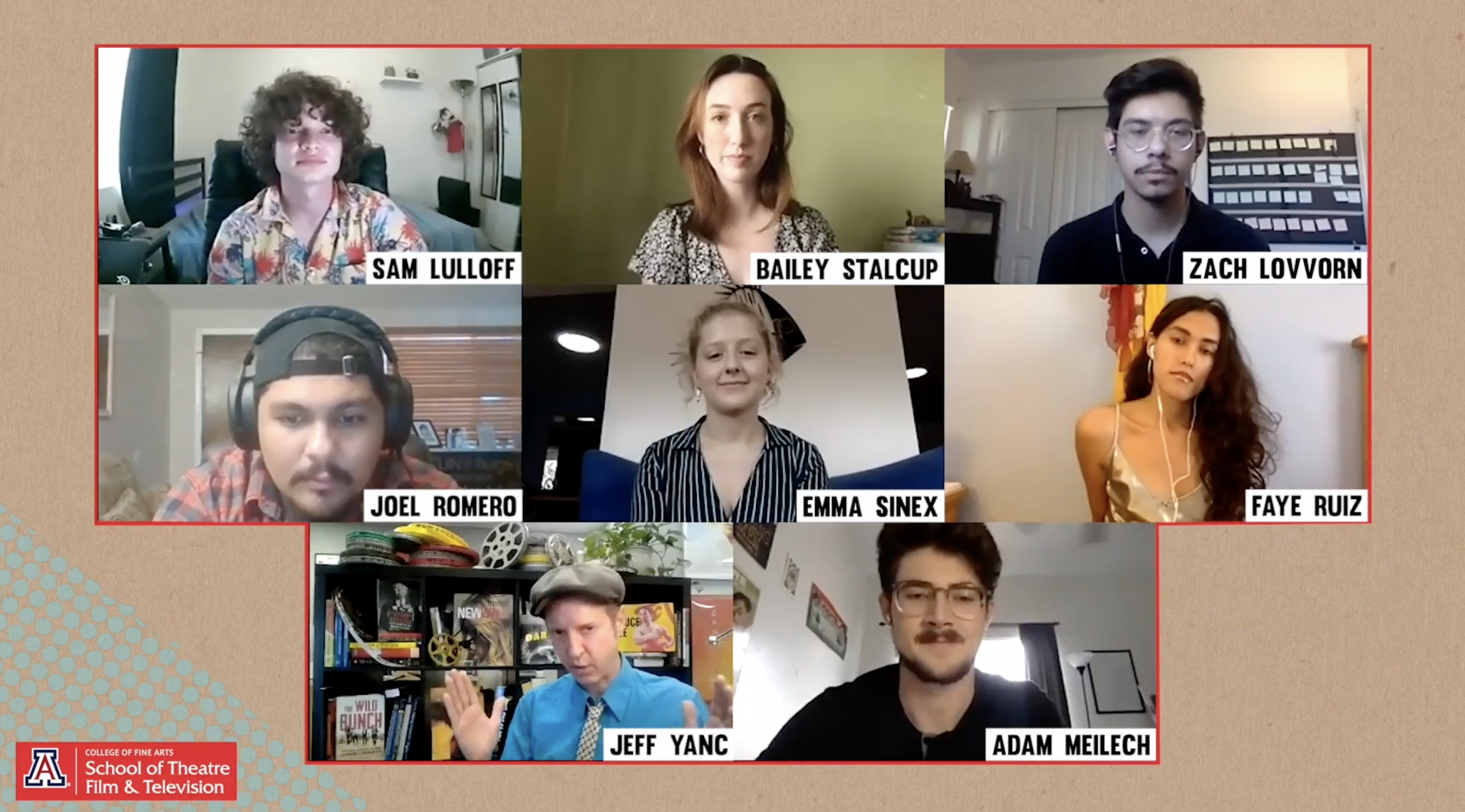
The first night showcase included: “Mirror” by Mason Day, “Tesoro” by Roxanna Denise Stevens Ibarra, “Karen from Susie May” by Dan Crowley & Adam AlegrÍa, “A Hunger” by Anthony Cutrone, “Side by Side” by Alyssa Urgo, “Dick’s Café Amrikano” by Zayna Altoubal & Daniel Paz and “Houses in Motion” by Adrian Meyer & Martin Somoza. Night one of the mini-film festival was filled with themes and topics ranging all across the board from adoption to a heroine taking control of her own destiny.
The last seven films to closed out the second evening including: ”Iris” by Zach Lovvorn, “You Don’t Dare Know” by Bailey Stalcup, “The Leak” by Adam Meilech, “Barren” by Emma Sinex, “Till The End” by Joel Romero, “Ice Cream Run” by Sam Lulloff and “The Lights Are On, No One’s Home” by Faye Ruiz. These films covered the subliminal politics of student government to how the past has the ability to influence our present in more ways than one.
RELATED: Tucson Museum of Art reopens July 30 with a new wing
All 14 of the films can be located at the the School of Theatre, Film & Television’s YouTube channel.
An awards ceremony concluded the evening and recognized the accomplishments of filmmakers in distinct categories determined by three jurors: Rob Gonzales, film competition director at the Austin Film Festival, Allison Vanore and Katie Walsh, film critic and journalist.
Dan Crowley, Martin Somoza, Faye Ruiz, Zach Lovvorn, Roxanna Denise Stevens Ibarra and more were awarded with prizes ranging from excellence in sound design to excellence in cinematography.
Other films like “Barren,” “The Leak,” “You Don’t Dare Know,” “Side by Side” and “Till The End” made their noteworthy IDIWS debut.
Despite the circumstances and an uncertain future ahead, the class of 2020 from the School of Theatre, Film & Television were hopeful that they are talented enough to create and adapt their own path and that there is new art to be made.
“I think one of the most exciting things about it is that, you know, so many of the world’s favorite films, you look at what actually happened. … So, although it’s, like, stressful and inconvenient and all of that, I think, you know, that’s one of the reasons why it’s so exciting is because when things go wrong, that’s when the smartest people are at their best and you get the best, most exciting art,” Altoubal said. “So, I mean, at least we have that to look forward to.”
Follow Amaris Encinas on Twitter



